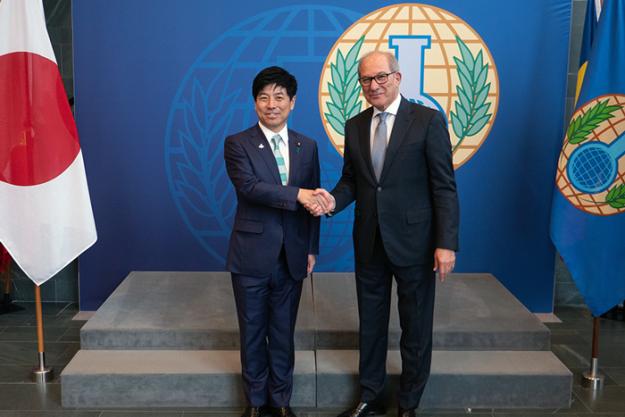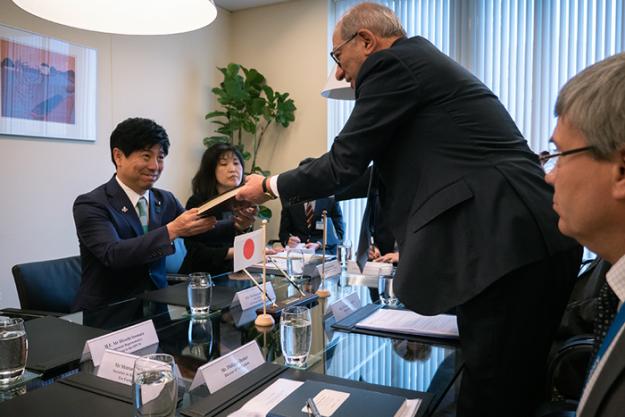
The State Minister of Foreign Affairs of Japan meeting the Director-General of the OPCW
THE HAGUE, Netherlands — 30 April 2018 — The State Minister of Foreign Affairs of Japan, H.E. Mr Kazuyuki Nakane, met with the Director-General of the Organisation for the Prohibition of Chemical Weapons (OPCW), Ambassador Ahmet Üzümcü, during a visit today to OPCW Headquarters in The Hague.
The Director-General and the State Minister of Foreign Affairs discussed issues related to the implementation of the Chemical Weapons Convention (CWC), OPCW activities in Syria, and efforts to counter the threat of non-State actor use of chemical weapons. The Director-General also provided an update on OPCW’s work in relation to the recent incident in Salisbury, United Kingdom.
The Director-General said: “Japan has always been a resolute supporter of the goals of the Convention, a treaty essential for upholding international peace and security. Today, we have reaffirmed our determination to work together towards the complete elimination of chemical weapons across the globe, and to prevent their re-emergence.”

The State Minister of Foreign Affairs of Japan, H.E. Mr Kazuyuki Nakane’s visit to the OPCW
The State Minister of Foreign Affairs stated that he “would like to praise the OPCW for its professionalism and dedication under the leadership of the Director-General”.
State Minister Nakane was accompanied by Permanent Representative of Japan to the OPCW, H.E. Mr Hiroshi Inomata and other members of the delegation.
Background
Japan joined the Chemical Weapons Convention in 1997 and is a current member of the OPCW’s Executive Council.
As the implementing body for the Chemical Weapons Convention, the OPCW oversees the global endeavour to permanently eliminate chemical weapons. Since the Convention’s entry into force in 1997 – with its 192 States Parties – it is the most successful disarmament treaty eliminating an entire class of weapons of mass destruction.
Over 96 per cent of all chemical weapon stockpiles declared by possessor States have been destroyed under OPCW verification. For its extensive efforts in eliminating chemical weapons, the OPCW received the 2013 Nobel Prize for Peace.
